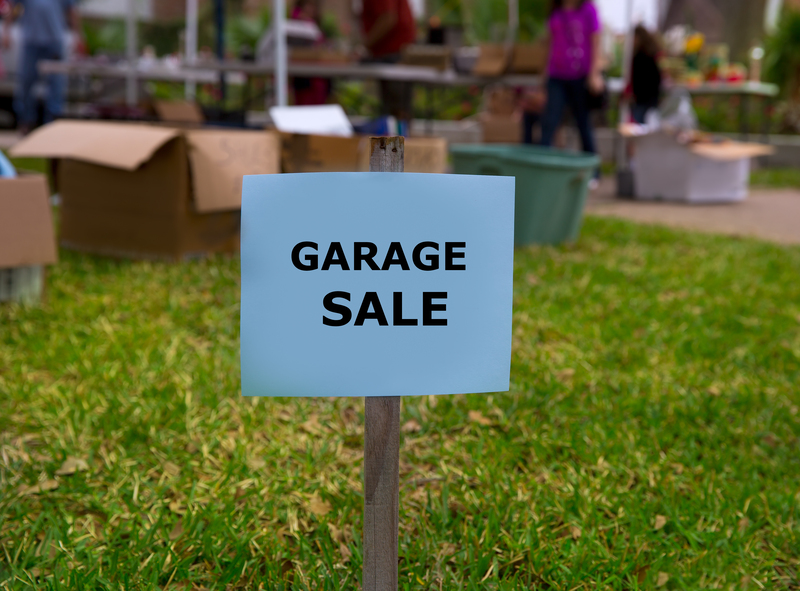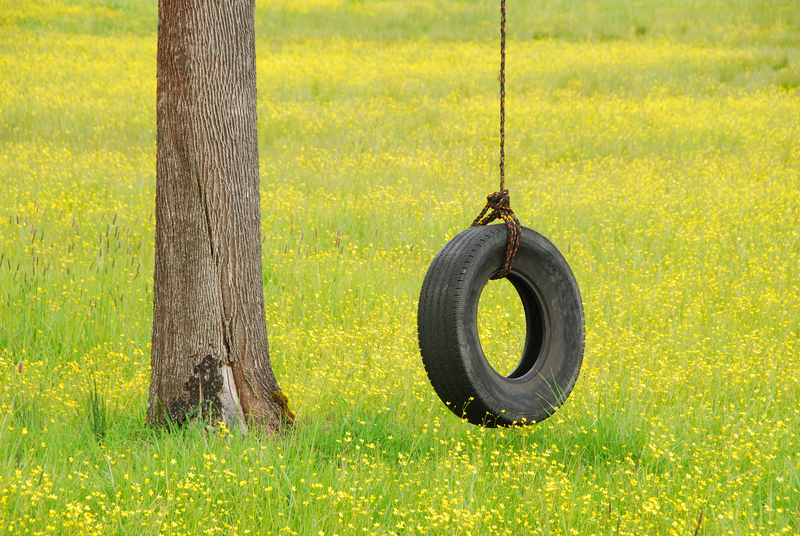Keep the Planet Safe: How to Throw Away PPE Responsibly
The COVID-19 pandemic brought personal protective equipment (PPE) such as masks, gloves, and face shields into daily use across the globe. While PPE plays a vital role in safeguarding public health, improper disposal has created a significant environmental problem. Discarded masks and gloves now litter streets, parks, oceans, and forests, threatening wildlife and contaminating ecosystems. How can we keep the planet safe by throwing away PPE responsibly? This comprehensive guide will show you the best sustainable practices for disposing of personal protective equipment, why it matters, and responsible alternatives for a greener future.
Understanding the PPE Pollution Crisis
Since early 2020, the production and use of PPE have skyrocketed. An estimated 129 billion disposable face masks and 65 billion disposable gloves are used globally every month. Unfortunately, many of these items don't make it into proper waste streams. Instead, they end up in nature, where they can take up to 450 years to decompose.
Environmental Impacts of PPE Waste
- Wildlife Hazards: Animals can mistake PPE for food or become entangled, which can lead to injury or death.
- Plastic Pollution: Most disposable PPE is made from plastics like polypropylene, which breaks down into microplastics and pollutes soils and waters.
- Ecosystem Disruption: Accumulation of PPE waste can disrupt habitats, alter soil chemistry, and harm aquatic life.
Tossing PPE irresponsibly not only poses health hazards but also puts immense pressure on the environment.

Why Responsible PPE Disposal Is Essential
Properly discarding disposable gloves, masks, gowns, and shields is key for:
- Preventing Litter: PPE debris is unsightly, costly to clean up, and can clog drains, causing urban flooding.
- Reducing Disease Spread: Used PPE can harbor pathogens, posing risk to waste collectors and the public if left exposed.
- Protecting Wildlife: Rubbish in nature often ends up in the mouths or around the necks of animals.
Understanding the gravity of PPE pollution helps motivate us all to follow best practices for disposal and recycling.
How to Properly Throw Away PPE
At Home: The Do's and Don'ts
- Do: Place used PPE (like disposable masks and gloves) in a secure rubbish bin, preferably inside a plastic bag to minimize contamination risks.
- Do: Wash your hands thoroughly before and after handling discarded PPE.
- Don't: Toss used PPE in your recycling bin unless your local authority specifically allows it.
- Don't: Litter PPE on the ground, roadsides, or water bodies.
Note: Most single-use PPE is not recyclable through general curbside programs and must go to landfill or specialized waste facilities.
When Out and About
If you need to remove a mask or gloves while outside:
- Carry a sealable bag for storing used PPE until you reach a bin.
- Dispose of the PPE in the nearest proper waste container.
- Never throw PPE into recycling bins in public places.
The Best Way to Discard Masks, Gloves, and Other PPE
How to Dispose of Face Masks Responsibly
Most disposable surgical and N95 masks are made from layers of synthetic fibres. They generally are not biodegradable or recyclable in common recycling streams.
- Cut the ear loops before disposal to prevent wildlife entanglement.
- Seal masks in a bag before putting them in the trash.
- Avoid flushing masks down the toilet - this causes plumbing and environmental issues.
Proper Glove Disposal Steps
- Roll gloves inside-out as you remove them, avoiding skin contact with the outside.
- Place them in a lined trash bin or a sealed bag.
- Gloves belong in the general waste, not the recycling bin!
Guidance on Other PPE Items
- Face Shields: Plastic shields may sometimes be recyclable. Check with your local facility for guidelines before recycling.
- Protective Gowns: Usually designed for one-time use and should be sealed and disposed of like masks or gloves.
PPE Disposal for Businesses and Healthcare Facilities
For workplaces, hospitals, or clinics, PPE waste is considered clinical or hazardous waste and must follow stricter guidelines:
Best Practices for Organizations
- Designate PPE waste bins: Clearly label bins for masks, gloves, and gowns, keeping them separate from other waste streams.
- Train staff on safe removal and disposal of PPE.
- Work with licensed waste contractors to collect, treat, and dispose of PPE in compliance with health regulations.
Proper waste handling protects cleaning staff, minimizes secondary contamination, and ensures legal compliance.
Can PPE Be Recycled?
Most single-use PPE is not recyclable in household recycling programs due to contamination risks and the mixed materials used in production. However, recent innovations offer hope.
Specialty Recycling Programs
- TerraCycle PPE Recycling Boxes: Some companies offer paid collection boxes for used masks, gloves, and gowns. After collection, PPE is cleaned and converted into raw materials for products like park benches or construction panels.
- Local Initiatives: Some communities have pilot PPE recycling projects in partnership with waste processors or universities, especially for business and organizational use.
- Masks to Mats: Certain schemes collect disposable masks and convert them into mats or insulation. Availability is limited.
If you're interested in these solutions, check with local authorities or companies like TerraCycle for program availability in your area.
Sustainable Alternatives: Reducing PPE Waste
The best way to minimize PPE waste is to reduce dependence on single-use items whenever possible:
Reusable Face Masks
- Use high-quality cloth masks that can be washed and reused, especially for daily public use where medical-grade masks are not required.
- Have several reusable masks on hand to allow for proper washing and drying between uses.
- Tip: Wash masks in hot water using detergent and dry completely before reuse.
Eco-Friendly PPE
- Look for masks, gowns, or face shields made from biodegradable materials like cellulose or bamboo fiber.
- Some companies produce compostable PPE certified for industrial composting facilities.
Reusable Gloves
- Where appropriate, use reusable rubber or nitrile gloves and sanitize them between uses instead of constant disposal.
Tips to Encourage Responsible PPE Disposal in Your Community
Change starts at the community level. Help keep the planet safe by spreading awareness and promoting responsible disposal:
- Share Information: Educate family, friends, and colleagues about proper PPE waste handling.
- Install Signage: Place posters or signs near waste bins at workplaces, schools, and public spaces describing how to dispose of masks and gloves safely.
- Organize Clean-Ups: Join or lead local park or beach clean-ups to remove PPE litter and highlight the issue.
- Support Legislation: Advocate for city or national programs that address PPE waste, such as dedicated drop-off points and fines for PPE littering.
What Happens If PPE Is Not Disposed of Properly?
Poorly discarded PPE has a ripple effect on health, wildlife, and cities:
- Health Hazard: Waste workers risk exposure to germs and pathogens if PPE is discarded loosely.
- Choking and Entanglement: Birds, marine mammals, and other animals may die after ingesting pieces of PPE or getting entangled in straps.
- Flood Risk: Masks and gloves can block storm drains, increasing local flooding during heavy rain.
- Visual Pollution: Littered PPE reduces public trust in waste management and tarnishes the beauty of outdoor spaces.
The Future of PPE and Environmental Safety
Researchers and manufacturers are now racing to develop more sustainable PPE solutions. Biodegradable masks and compostable gloves are already in production, but mass adoption and regulation are still needed.
- Support or invest in eco-friendly PPE brands.
- Encourage government incentives for businesses that minimize PPE waste.
- Promote innovations in recycling technology for contaminated plastic waste.

Frequently Asked Questions About PPE Disposal
Can disposable masks and gloves be recycled?
Typically, no. Most curbside recycling programs do not accept PPE due to contamination and material issues. Specialized recycling programs are emerging but not yet widespread.
What should I do if I see discarded PPE in public?
Use a litter picker or gloves to collect the items, place them in a sealed bag, and dispose of them in a trash bin. Wash your hands thoroughly after handling littered PPE.
Are there penalties for improper PPE disposal?
Many cities now issue fines for PPE littering, similar to penalties for other hazardous waste violations.
Conclusion: Protecting the Planet, One Mask at a Time
The responsible disposal of PPE is a small act with a big impact. By understanding correct disposal methods, reducing consumption of single-use PPE, and supporting sustainable alternatives, we can all play a role in keeping our planet safe and clean. Let's work together to ensure that our protective measures do not become another source of harm to the Earth for generations to come.
Further Resources
- World Health Organization: COVID-19 Waste Management
- TerraCycle PPE Zero Waste Box
- U.S. EPA: Disposing of PPE and Cleaning Materials
Remember: Every piece of PPE disposed of properly brings us one step nearer to a healthier, more sustainable world. Keep the planet safe--dispose of your protective gear responsibly!
